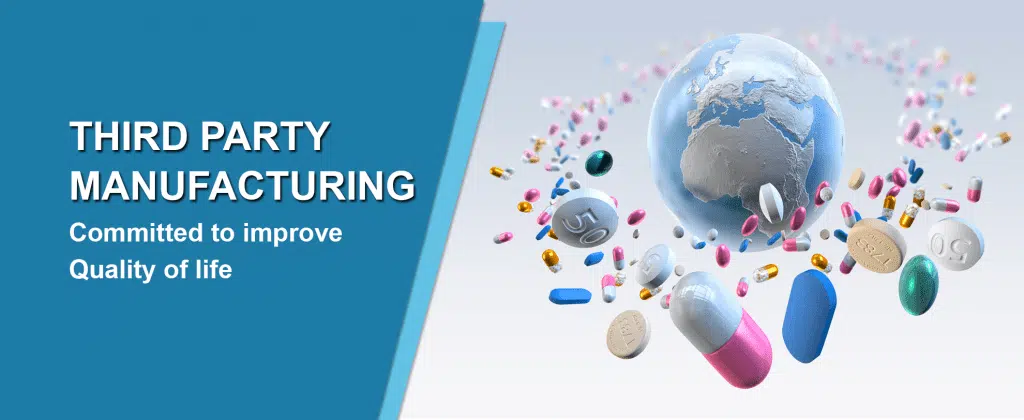Documents Required for Third-Party Pharma Manufacturing: A Comprehensive Guide

The Foundation – Why Proper Documentation Matters
Entering the pharmaceutical manufacturing sector requires more than capital and ambition; it requires meticulous planning, compliance, and documentation. For businesses aiming to leverage third-party manufacturing, documentation forms the backbone of a successful operation. Without proper legal, financial, and regulatory papers, even the most promising pharma venture can face severe delays, penalties, or regulatory hurdles.
VTV Formulations has assisted countless clients in navigating this complex landscape. Our experience demonstrates that well-prepared documentation not only expedites approvals but also builds credibility with manufacturers, regulators, and distributors. Legal documents establish the legitimacy of the business, financial records demonstrate operational stability, and quality compliance certificates ensure that products meet the highest standards.
Beyond regulatory necessity, documentation serves as a strategic tool for risk management. Accurate legal proofs, drug licenses, and identity verification protect businesses from legal repercussions. Financial documents confirm solvency and the ability to fund production at scale. Operational and quality documentation ensures smooth production, traceability, and accountability. By preparing these documents in advance, businesses can focus on marketing, distribution, and brand building, while relying on experienced manufacturers like VTV Formulations to handle production and quality assurance.
Proper documentation also fosters trust. Distributors and retailers prefer partnering with companies that have a transparent, compliant, and organized framework. Investors and financial institutions likewise favor businesses that demonstrate documented operational readiness. In essence, documentation is not just paperwork—it is a foundation for credibility, scalability, and long-term success.
By recognizing the importance of these documents early, businesses can avoid costly mistakes and set the stage for successful, sustainable third-party manufacturing partnerships.

Legal and Regulatory Documentation Essentials
Business Registration and Legal Identity
The first step in establishing a third-party pharma manufacturing venture is securing a legal identity. A well-defined business structure ensures operational clarity, legal protection, and regulatory compliance.
Common registration types include :
- Private Limited Company : Offers credibility, limited liability, and easier access to financing. Ideal for companies with long-term growth plans.
- Limited Liability Partnership (LLP) : Combines operational flexibility with liability protection, suitable for mid-sized ventures.
- Proprietorship : Simpler structure, generally suitable for smaller, low-capital operations.
Essential documents for registration include Certificate of Incorporation, PAN, GST registration, and trade licenses. These establish the business legally, allowing interactions with suppliers, distributors, and regulatory bodies.
Drug Licenses – The Heart of Compliance
A manufacturing license (Form 25/28) is the core document that authorizes pharmaceutical production. Each drug category—tablets, capsules, syrups, injectables, or ointments—may require separate approvals.
Equally critical is the No Objection Certificate (NOC) from the State Drug Authority, verifying that the production premises comply with the required standards. Obtaining licenses in advance ensures regulatory inspections proceed smoothly and production can begin without delays.
Example : A client intending to manufacture injectable formulations with VTV Formulations must secure licenses for sterile production. Without these documents, even small-scale pilot batches cannot legally be produced.
Identity and Premises Verification
Regulators require verification of the authorized signatory and the manufacturing premises.
- Owner/Director Identity Proof : Aadhaar, Passport, or Voter ID.
- Owner Address Proof : Utility bills, bank statements, or rental agreements.
- Premises Proof : Lease agreements, property ownership certificates, or landlord NOCs.
Having all identity and premises documents properly organized minimizes approval delays and audit risks. VTV Formulations emphasizes accuracy and completeness, ensuring smooth collaboration.
Why Legal Documents Are Critical
Legal and regulatory documents protect your business from legal and operational risks. They:
- Enable regulatory compliance with central and state authorities.
- Build credibility with distributors, partners, and financial institutions.
- Ensure smooth inspections and audits, reducing the risk of operational halts.
Businesses that overlook these essentials often face delays, penalties, and reputational damage. Proper documentation from the start forms the legal backbone of third-party manufacturing operations.
Financial, Operational, and Quality Documentation
Financial Documentation – Proof of Stability
Financial documents are a critical component of third-party manufacturing. They demonstrate a company’s ability to fund production and maintain operational continuity.
Key documents include :
- Business Bank Accounts : All financial transactions, including raw material purchases and payments to manufacturers, are processed through verified accounts.
- Audited Financial Statements : Establish the company’s financial health, reassuring manufacturers like VTV Formulations of payment reliability.
- Solvency Certificates : Confirm the ability to manage large-scale production, including emergency batches.
Transparent finances not only facilitate smoother partnerships but also improve access to financing for expansion.
Operational Documentation – Clarity and Accountability
Operational documents are essential for managing the production workflow efficiently.
- Manufacturing Agreements : Outline production scope, timelines, costs, and responsibilities.
- Inventory and Supply Records : Track raw materials and finished products for traceability.
- Distribution Logs : Document product movement to wholesalers, distributors, and retailers.
Maintaining these documents ensures accountability, audit readiness, and error minimization during production cycles.
Quality Assurance – The Non-Negotiable Standard
Quality compliance is the cornerstone of pharmaceutical manufacturing. WHO-GMP and ISO certifications are essential, validating that production processes meet international standards.
Other critical documents include :
- Batch Manufacturing Records (BMRs) : Detailed documentation of each production batch, ensuring traceability.
- Quality Control Reports : Chemical, microbial, and physical testing results to guarantee product safety.
- Stability and Compliance Reports : Ensures formulations maintain efficacy throughout shelf life.
Example : Companies partnering with VTV Formulations receive full support in preparing and maintaining these records, ensuring every batch meets regulatory scrutiny.
Branding and Marketing Documentation
Even though production is outsourced, branding requires proper documentation to comply with legal standards. Product labels, inserts, and promotional materials must be approved to avoid legal issues and market rejections. Well-documented branding helps maintain consistency, credibility, and market acceptance.
Optional Documents and Strategic Planning
Supporting Documentation for Credibility
Before diving into optional documentation, it’s important to understand that these papers, while not mandatory, play a key role in enhancing credibility, operational efficiency, and long-term growth. They support smoother partnerships, reinforce investor and distributor confidence, and help protect proprietary formulations. Properly organized optional documents complement the core legal, financial, and quality records, making your business more professional and audit-ready.
While optional, certain documents can strengthen your reputation and operational efficiency:
- Company Profile : Showcases expertise, history, and capabilities.
- Experience Certificates : Demonstrates prior involvement in pharmaceutical operations.
- Insurance Documents : Protects business assets, employees, and production.
- NDAs and Technical Agreements : Safeguard proprietary formulations and intellectual property.
Strategic Benefits of Organized Documentation
Documentation is more than compliance; it is a strategic tool for growth. Companies with well-prepared documents:
- Expand product lines efficiently.
- Enter new markets with minimal delay.
- Maintain investor and partner confidence.
VTV Formulations guides clients to maintain meticulous records, enabling smooth scaling and production. Well-organized documentation reduces regulatory risks, streamlines audits, and supports long-term growth.
In conclusion, the success of a third-party manufacturing venture depends heavily on documentation excellence. Legal, financial, operational, and quality documents ensure compliance, safety, and operational efficiency. With VTV Formulations as a partner, companies can confidently focus on brand building and market growth, knowing that production and documentation are expertly managed.
Explore Related Blogs
Stay informed with our curated selection of similar blogs, offering expert perspectives on pharmaceutical trends, regulatory updates, and product innovations.
These articles are designed to help healthcare professionals, partners, and businesses stay ahead in an ever-evolving industry. Explore more to deepen your knowledge and make informed decisions.